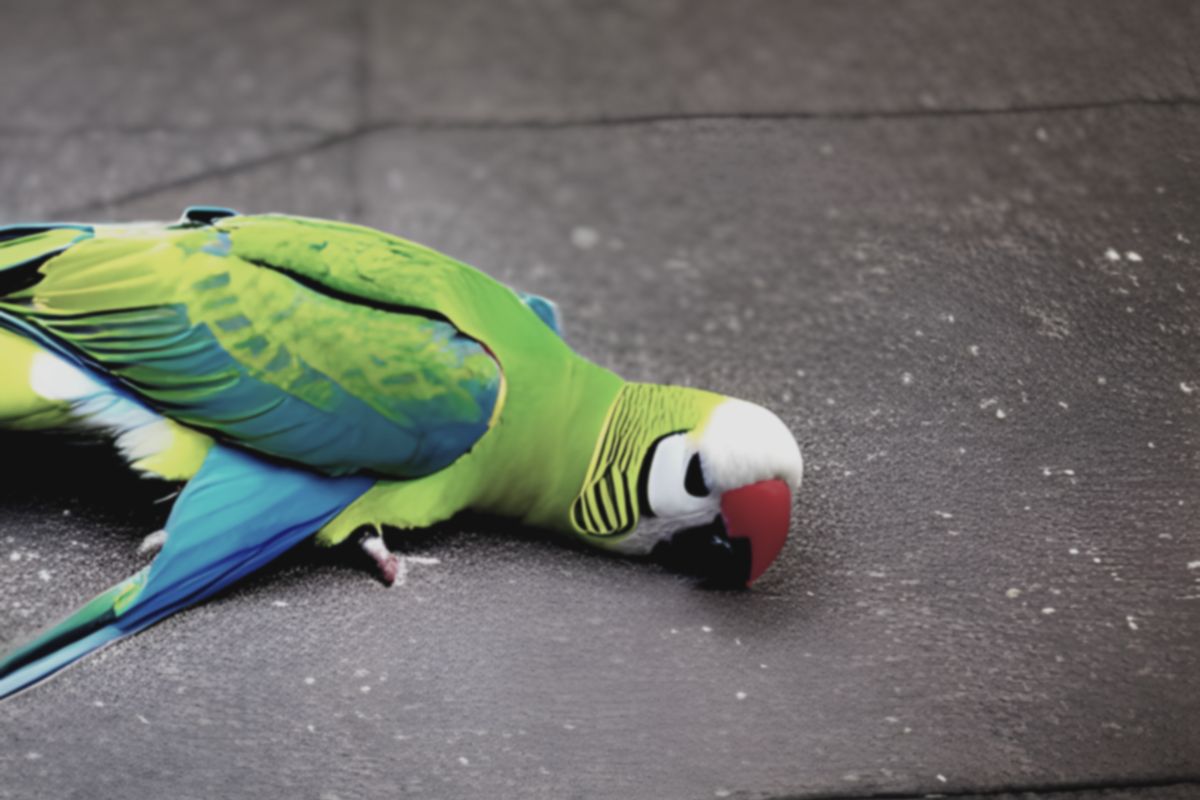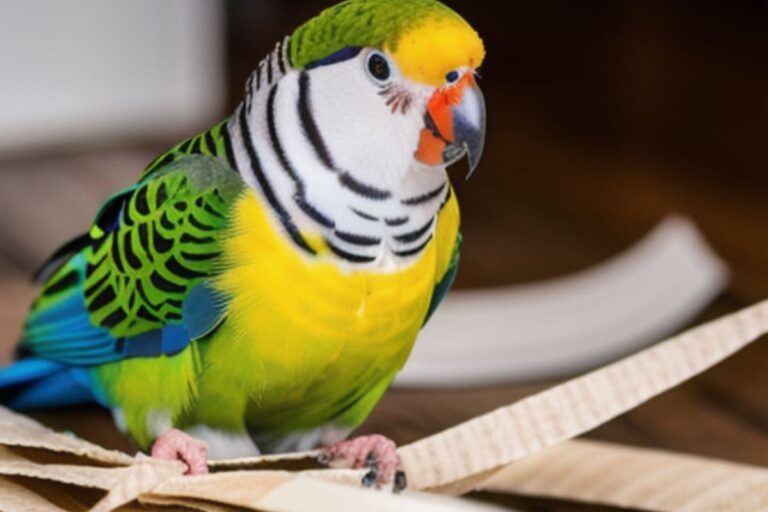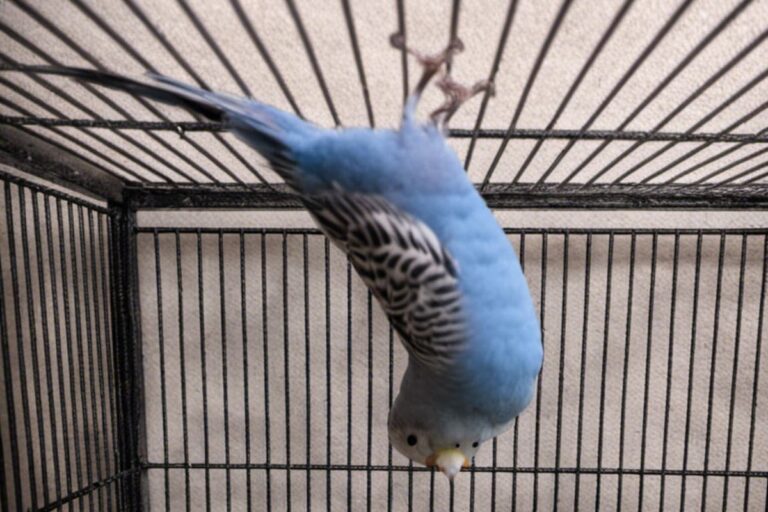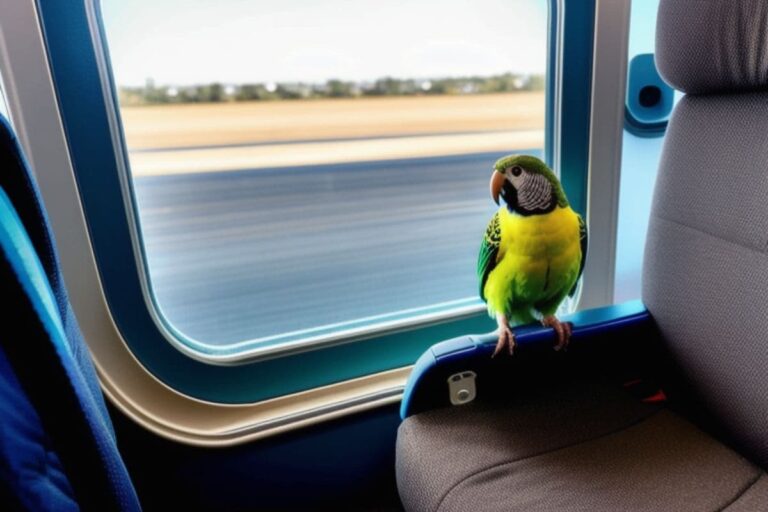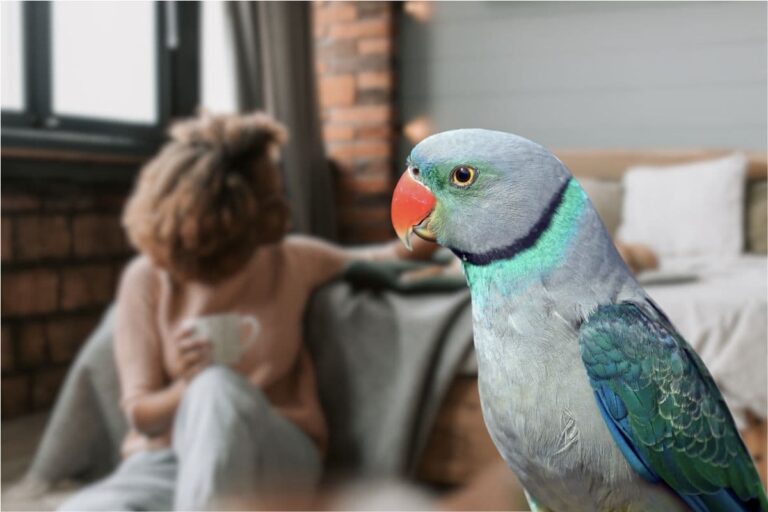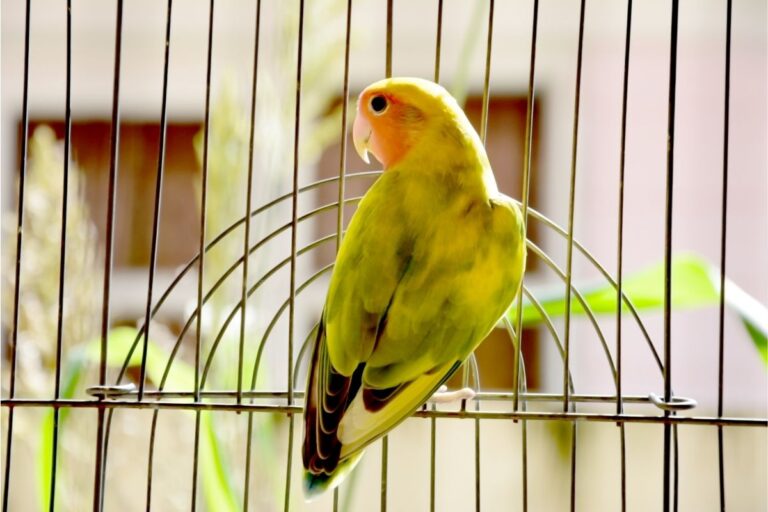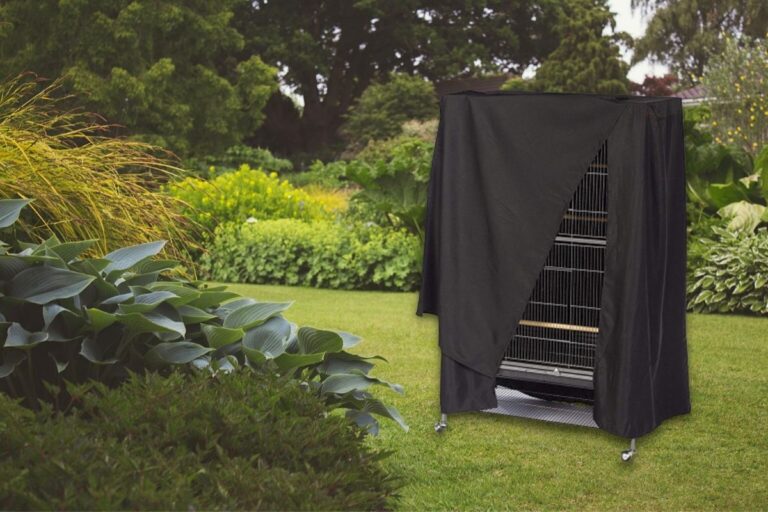Why Did My Parakeet Die Suddenly
Disclosure: The opinions expressed in this post are my own. This post may also contain affiliate links, which means that I will receive a commission if you decide to purchase through my links, at no additional cost to you. As an Amazon Associate, I earn from qualifying purchases.
It can be heartbreaking and frustrating to lose a beloved pet suddenly, especially when it is seemingly healthy. One minute they’re there, and the next they’re gone. It’s always a shock, no matter how prepared you think you are. There are many potential causes of sudden death in parakeets, and it is important to try to understand what may have caused your parakeet’s death in order to prevent it from happening again in the future. Let’s find out some of the more common reasons.
Accidental Poisoning

One of the most common but preventable ways that parakeets die is from accidental poisoning. Parakeets are very curious birds and will often chew on things they shouldn’t, like household cleaners, pesticides and plants that are poisonous to them.
One way to prevent accidental poisoning is to make sure that your parakeet’s living environment is free of potential toxins. This means keeping household cleaners and chemicals out of reach and avoiding using pesticides around your parakeet’s enclosure. It is also important to research which plants are toxic to birds and to avoid keeping them in or near your parakeet’s enclosure.
If you think your parakeet may have ingested something poisonous, it’s important to take them to a vet immediately. Symptoms of poisoning can include vomiting, diarrhea, lethargy, and difficulty breathing. If you observe any of these symptoms, it is important to seek immediate medical attention for your parakeet.
Night Fright
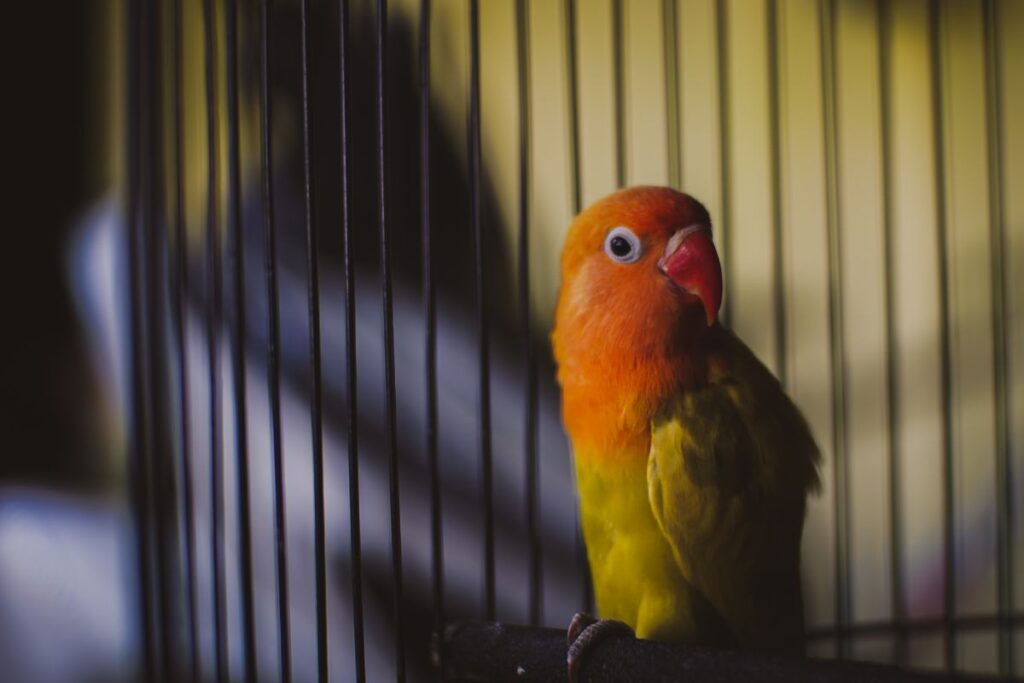
Night fright is a common problem in parakeets, and it can be fatal if your bird is not quickly removed from the situation. Night fright usually occurs when a parakeet is startled by a loud noise or sudden movement in the dark. The bird’s natural instinct is to fly away from the perceived danger, but because it is dark, the bird does not see the cage wire and crashes into it. If you find your parakeet dead in the morning, night fright may be to blame.
You can prevent night fright by keeping your parakeet’s cage in a well-lit room at night and covering the cage with a light-colored cloth to diffuse any sudden movements or loud noises. You should also avoid placing the cage near windows where birds outside could startle your pet. If your parakeet does have a night fright episode, remove him from the situation immediately and provide calm reassurance until he recovers.
Parrot Fever
Parrot fever is a condition caused by infection with bacteria from the genus Chlamydia. These bacteria are commonly found in wild birds, and can be transmitted to pet birds through contact with contaminated feces or feathers. Parrot fever can affect any type of bird, but is most common in parrots, cockatiels, and other members of the parrot family.
Symptoms of parrot fever include lethargy, loss of appetite, diarrhea, and respiratory distress. Birds may also have swollen joints and/or develop sores on their body. If left untreated, parrot fever can be fatal.
Parrot fever is diagnosed through laboratory testing of a bird’s blood or feces. Treatment involves a course of antibiotics, and birds typically recover within a few weeks. However, some birds may experience long-term effects from the disease, such as arthritis or heart problems.
To prevent parrot fever, avoid contact with wild birds and do not allow your bird to share food or water dishes with other birds. If your bird shows signs of illness, take it to a veterinarian immediately for treatment.
Disease
If your parakeet dies suddenly, it is likely due to disease. Parakeets are susceptible to a number of diseases, many of which are fatal if not treated promptly. Some of the most common diseases include:
- Pacheco’s disease
- Polyomavirus
- Psittacosis
- HCM (heart disease)
- Cancer
If you notice any sudden changes in your parakeet’s behavior or appearance, take them to the vet immediately. Early diagnosis and treatment is essential for the best chance of recovery.
Cooking With Non-Stick Pans or Air Fryers
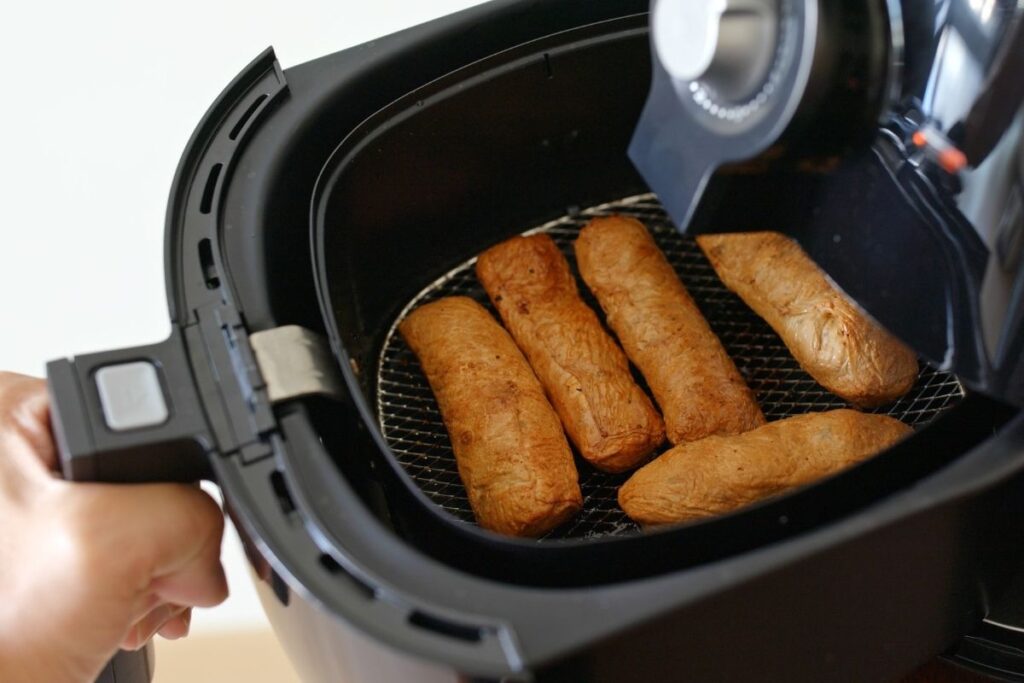
If you’re trying to be healthy and cook without adding extra fat or oil, you may be using a non-stick pan or an air fryer. While these methods do reduce the amount of fat and oil in your food, they can also be dangerous. If you use either of these methods, make sure you’re doing so safely to avoid potential accidents.
Non-stick pans are coated with a substance called polytetrafluoroethylene (PTFE), which is a synthetic polymer. When this substance is heated above 446 degrees Fahrenheit, it begins to break down and release toxins into the air. These toxins can be deadly if inhaled, so it’s important to use caution when cooking with non-stick pans. If you must use a non-stick pan, make sure to use it on low or medium heat and never preheat the pan empty. You should also avoid heating the pan too long, as this will cause the PTFE to break down more quickly.
Air fryers cook food by circulating hot air around it. This hot air can reach temperatures of up to 400 degrees Fahrenheit, which means that it can also break down PTFE and release toxins into the air. If you have an air fryer, make sure to use it in a well-ventilated area and avoid preheating it empty. You should also avoid cooking foods that are high in fat, as this can cause the air fryer to reach higher temperatures and break down PTFE more quickly.
For detailed information on this topic, check out the article Are Air Fryers Safe for Birds, where we go through in detail why air fryers could be really dangerous for your birds if you are not using the right one. We also included a list of popular bird safe air fryers in that article.
Malnutrition or Poor Diet
Malnutrition refers to a lack of proper nutrition, either due to an insufficient intake of nutrients or an inability to absorb and utilize those nutrients properly.
Parakeets, like all birds, require a balanced and varied diet to maintain their health. This includes a mix of seeds, raw fruits, vegetables, and sometimes a small amount of protein. If a parakeet’s diet lacks in any of these essential nutrients, they may become malnourished.
Improper diet and malnutrition can lead to a variety of health problems in parakeets, including:
- Weakness and lethargy: A malnourished parakeet may be less active and have less energy, leading to a decrease in their overall quality of life.
- Feather loss: A lack of proper nutrition can lead to poor feather growth and maintenance, resulting in thin, patchy, or missing feathers.
- Reproductive problems: Malnutrition can affect a parakeet’s reproductive system, leading to problems with egg production and fertility.
- Increased susceptibility to illness: A malnourished parakeet may be more prone to contracting diseases and infections due to a weakened immune system.
- Developmental issues: In young parakeets, malnutrition can lead to slow growth and development, leading to long-term health problems.
The best way to prevent malnutrition in parakeets is to ensure that they have a balanced and varied diet. This can be achieved by providing a mix of seeds, fruits, vegetables, and a small amount of protein. It’s also important to ensure that your parakeet has access to clean, fresh water at all times. Avoid feeding your parakeets human foods too.
If you are unsure of what to feed your parakeet, it’s a good idea to consult with a veterinarian or a bird specialist. They can help you create a feeding plan that meets your parakeet’s specific needs.
Highly Sensitive Respiratory System
One of the most common respiratory issues in parakeets is an infection caused by bacteria or a virus. These types of infections can affect the respiratory tract, including the trachea, bronchi, and lungs. Symptoms of a respiratory infection in a parakeet may include coughing, sneezing, nasal discharge, and difficulty breathing.
In addition to infections, parakeets may also develop respiratory issues due to inhaling foreign objects or toxins. All birds have a respiratory system that is very efficient in delivering oxygen to their bodies. The system is designed so that they can get the oxygen they need while using very little energy. This efficiency, however, leaves them vulnerable to toxins and irritants in the air. A sudden exposure to fumes, dust, or other airborne substances can cause a bird to go into respiratory distress and die quickly.
If a parakeet’s respiratory system is not properly cared for, it can lead to severe respiratory distress and ultimately death. It is crucial to be vigilant in maintaining the health of your parakeet’s respiratory system to prevent serious complications or sudden death.
Dehydration
Dehydration is a another possible cause of sudden death in parakeets and other pet birds. It occurs when a bird’s body lacks sufficient water to function properly, and it can happen quickly if a bird is not given access to clean, fresh water.
Dehydration can be caused by a variety of factors, including illness, heat stress, and inadequate access to water.
The most obvious sign of dehydration in a parakeet is a lack of water in the bird’s body. This can manifest in a number of ways, including a sunken appearance to the eyes, a dry or sticky beak, and a loss of elasticity in the skin. If you gently pinch a small fold of skin at the back of your parakeet’s neck and then release it, it should quickly return to its normal position. If it takes longer than normal, or if the skin stays tented, your parakeet may be dehydrated.
Other signs of dehydration in parakeets include lethargy, weakness, and a lack of appetite. A dehydrated parakeet may also be more prone to respiratory problems and may experience difficulty breathing. If you suspect your parakeet is dehydrated, and too weak to drink on its own, your parakeet may need to be hospitalized and given fluids intravenously.
If you suspect your parakeet is severely dehydrated, it’s important to seek veterinary care as soon as possible.
Prolonged Heat Exposure
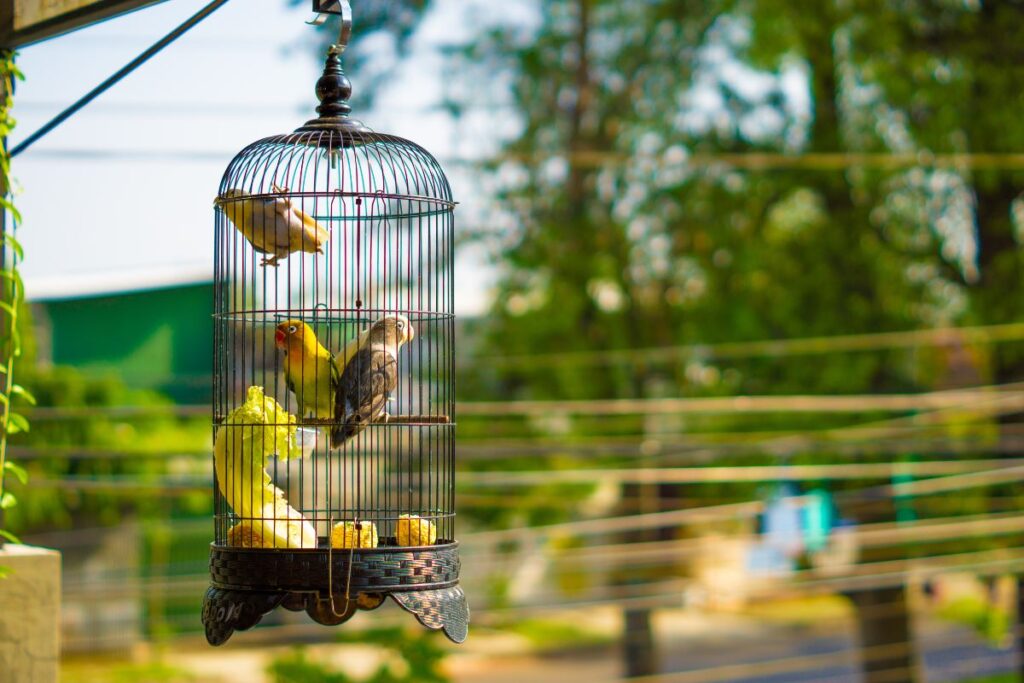
Parakeets are very sensitive to heat and can die quickly if they get too hot. If your parakeet was in a room that was very warm or hot, this could be the cause of the sudden death.
It is important for parakeet owners to be aware of the dangers of heat exposure and take steps to prevent it. This includes keeping the bird’s cage or aviary in a well-ventilated area that is out of direct sunlight, as well as providing plenty of fresh water for the bird to drink. It is also important to avoid placing the cage near heat sources such as radiators or heating vents, as these can cause the air inside the cage to become too hot for the bird to handle.
If a parakeet does become overheated, it is important to take immediate action to cool it down. This can be done by misting the bird with cool water, placing a frozen water bottle in the cage, or moving the cage to a cooler area. If the bird’s condition does not improve, it is important to seek veterinary care as soon as possible.
Heat stroke is a serious condition that can lead to organ failure and death in parakeets and other birds. It is caused by prolonged exposure to high temperatures, which can cause the bird’s body temperature to rise to dangerous levels. Symptoms of heat stroke in parakeets may include panting, lethargy, and weakness, as well as changes in behavior such as depression or aggression.
Infection
Another common cause of sudden death in parakeets is infection.
Infections can occur when bacteria or viruses invade the body and cause harm. They can affect different parts of the body, including the respiratory system, the digestive system, and the skin. In parakeets, respiratory infections are particularly common and can be caused by a variety of factors, including poor hygiene, stress, and overcrowding.
To prevent infections in parakeets, it is important to keep their living space clean and well-ventilated, avoid overcrowding, and provide a healthy diet. It is also a good idea to quarantine new birds before introducing them to a flock to prevent the spread of disease.
If you suspect that your parakeet may have an infection, it is important to seek veterinary care as soon as possible. A veterinarian will be able to diagnose the cause of the infection and prescribe appropriate treatment. In severe cases, hospitalization and intensive care may be necessary.



